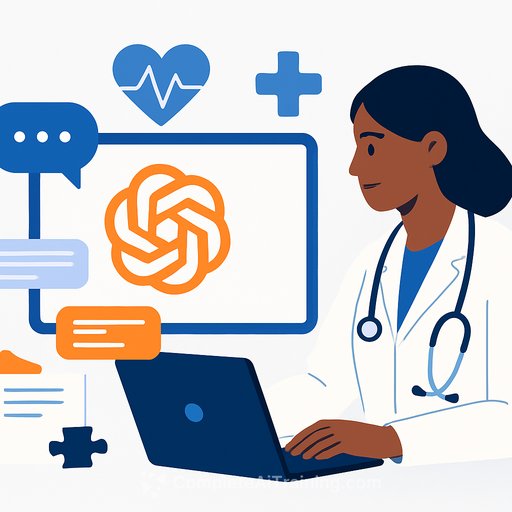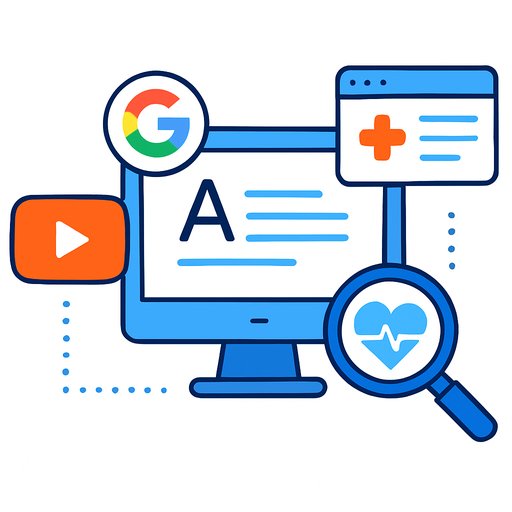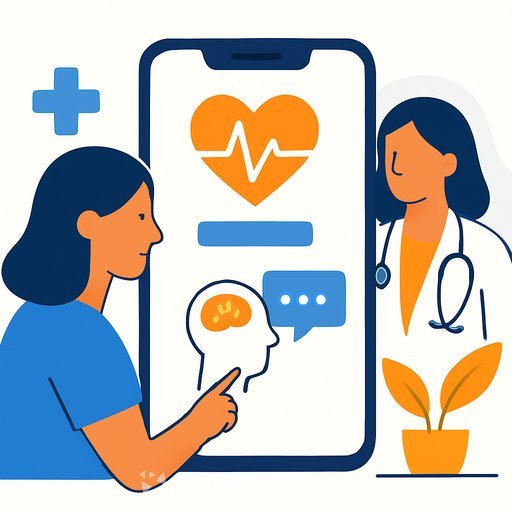ChatGPT in Healthcare: What an Umbrella Review Says-and How to Act on It
A new umbrella review takes a clear look at how AI tools-especially ChatGPT-are showing up across clinical work. The takeaway: there is real promise, but the evidence base is uneven and the risks are real. If you lead or deliver care, this is about measured adoption, rigorous testing, and strong oversight.
What the Review Covered
The review followed PRISMA guidelines and pulled studies from PubMed, Scopus, and the Cochrane Library through February 2024. In total, it analyzed 17 reviews-15 systematic reviews and 2 meta-analyses-focused on ChatGPT's role in medicine.
- 82.4% examined general applications in healthcare; 17.6% looked at specialized uses (e.g., medical exams, systematic reviews).
- 52.9% addressed broad healthcare contexts; 41.2% focused on fields like radiology, neurosurgery, gastroenterology, public health dentistry, and ophthalmology.
Study Quality: Useful, But Patchy
Using the AMSTAR-2 checklist, five reviews were rated moderate quality and twelve were low. Common gaps included weak justification of study design and limited transparency on funding sources.
Translation: the signal is encouraging, but you should expect variability in methods and claims. Treat findings as directional, not definitive policy.
Where ChatGPT Shows Promise
- Diagnostic and triage support: summarizing histories, suggesting differentials, and surfacing guidelines for clinician review.
- Decision support: generating evidence summaries and care plan options that clinicians can vet.
- Administrative workload: drafting notes, discharge instructions, referral letters, and patient-facing education at scale.
Across these areas, the model works best with clear prompts, structured inputs, and a clinician in the loop. Standalone use in high-risk decisions is not supported by current evidence.
Ethical and Legal Risks You Can't Ignore
- Data bias: outputs can mirror gaps or skew in training data, with downstream equity issues.
- Misinformation: confident but wrong responses remain a concern without verification steps.
- Accountability: unclear responsibility if AI-assisted advice contributes to harm.
- Privacy and security: PHI handling, logging, and vendor controls need explicit guardrails.
The review's stance is clear: adoption should move in step with testing, documentation, and oversight-not ahead of them.
Practical Steps for Healthcare Teams
- Start low-risk: patient education drafts, prior auth letters, coding support, literature triage. Keep clinicians as final reviewers.
- Evaluate locally: build test sets from your workflows; measure factual accuracy, bias, and consistency before go-live.
- Set governance: define approval pathways, version control, incident reporting, and audit trails for AI-assisted tasks.
- Protect data: restrict PHI exposure, use enterprise-grade tools, and lock down prompts/outputs with clear retention policies.
- Clarify accountability: document human oversight, sign-offs, and escalation steps for clinical content generated with AI.
- Train staff: short, role-specific training on prompts, verification, and known failure modes.
- Be transparent with patients: disclose AI assistance where relevant and provide a path for questions or opt-out.
For Policymakers and Educators
- Update guidance: define acceptable use cases, risk tiers, and minimum validation standards for LLMs in care settings.
- Embed AI literacy: integrate evaluation and oversight skills into medical and nursing curricula and CME.
- Align procurement: require model performance data, bias assessments, and security attestations from vendors.
Bottom Line
ChatGPT can help clinicians think faster and document smarter, but it shouldn't think for them. With careful implementation, clear testing, and accountable governance, AI can support care quality and efficiency without trading away safety or trust.
Want structured upskilling?
If your team is building AI capability, see role-focused programs here: Complete AI Training - Courses by Job.
Reference
Impact of large language model (ChatGPT) in healthcare: an umbrella review and evidence synthesis. J Biomed Sci. 2025;32(1):45.
Your membership also unlocks:






